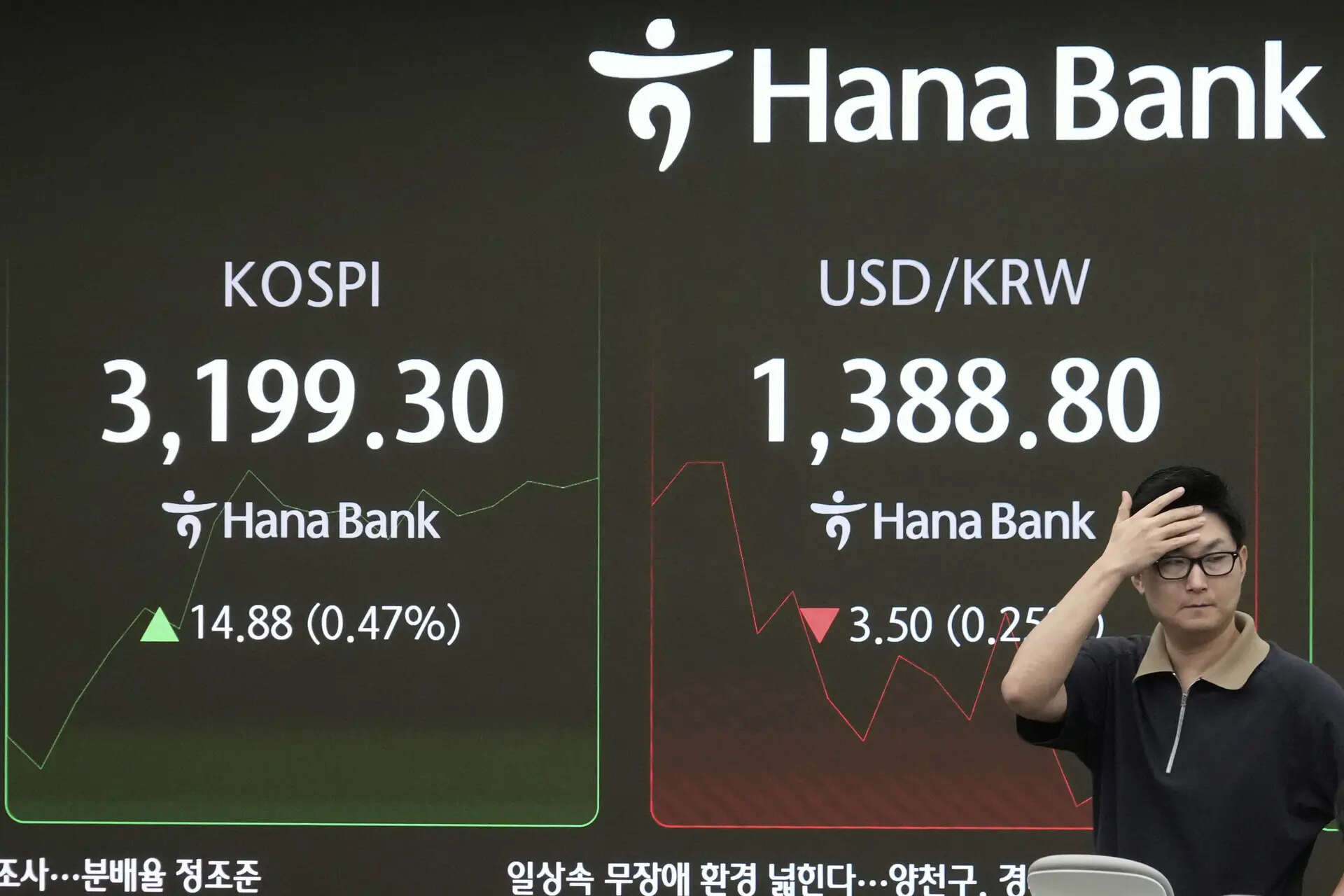Asian equities declined on Wednesday as investors paused after recent gains, with gold and silver also tumbling. This pullback followed US President Trump’s suggestion that a planned meeting with Chinese President Xi Jinping might not proceed. Markets in Hong Kong, Shanghai, and Tokyo experienced drops, while gold saw a sharp fall from its record peak.
Navigating Choppy Waters: Understanding Today’s Asian Stock Market Slide
The air in Asian markets crackled with uncertainty today, as a wave of selling pressure swept across exchanges, leaving few unscathed. From Hong Kong to Tokyo, investors seemed to be in risk-off mode, sending major indices tumbling. What fueled this widespread retreat? Let’s unpack the key factors at play.
The Hang Seng Index in Hong Kong bore the brunt of the negativity, slumping by a significant margin. Meanwhile, in Japan, the Nikkei 225 also experienced a sharp decline, shedding over 260 points. Similar stories unfolded across the region, painting a picture of broad-based investor unease. But these aren’t just numbers; they represent real anxieties about what lies ahead for the global economy.
US-China Tensions: The Undercurrent of Market Fear
A primary driver of this market jitters appears to be the escalating tensions between the United States and China. Geopolitical tensions are nothing new, but their impact on global commerce and investor confidence is always keenly felt. Recent developments have reignited concerns about potential trade barriers, technological restrictions, and broader strategic competition between the two superpowers.
These tensions cast a shadow over the prospects for global economic growth. Businesses reliant on smooth trade flows and international collaboration are understandably hesitant to invest aggressively when the future seems so uncertain. This reluctance then translates into lower stock valuations as investors adjust their expectations. The relationship between these two global powerhouses is crucial for market stability.
Beyond Geopolitics: Other Factors Weighing on Sentiment
While US-China relations undoubtedly dominate the headlines, they are not the only factor influencing market performance. Inflation remains a persistent concern in many economies. Central banks around the world are walking a tightrope, trying to curb rising prices without triggering a recession.

Furthermore, specific domestic challenges within individual Asian economies are also contributing to the overall market picture. These challenges could include everything from regulatory changes to shifts in consumer behavior. To understand the full picture, a deep dive into each country’s unique situation is necessary.
What Does This Mean for Investors?
Periods of market volatility can be unnerving for investors. It’s crucial to remember that market fluctuations are a normal part of the economic cycle. Panic selling can often lead to missed opportunities for long-term growth.
Instead of reacting emotionally, consider revisiting your investment strategy. Is your portfolio diversified enough to weather market storms? Are you comfortable with your current risk tolerance? Now may be a good time to rebalance your holdings and ensure that your investments align with your financial goals. And remember, seeking advice from a qualified financial advisor is always a prudent step.
Looking Ahead: Navigating the Uncertainty
Predicting the future with certainty is impossible, but staying informed and adaptable is critical for investors. Monitoring geopolitical developments, tracking economic indicators, and understanding the specific challenges facing individual companies and countries will provide valuable insights.
For example, understanding the impact of inflation on specific sectors of the economy can help inform investment decisions. Similarly, staying abreast of technological advancements and their potential disruptiveness can also be invaluable. By remaining vigilant and proactive, investors can navigate the current market turbulence and position themselves for long-term success. You can find more insights into [investment strategies for volatile markets](internal-link-to-related-content).
In Conclusion: A Time for Prudence and Preparation
The recent slide in Asian stock markets serves as a reminder of the interconnectedness of the global economy and the ever-present potential for volatility. While short-term market movements can be unsettling, maintaining a long-term perspective and focusing on sound investment principles is essential. This isn’t a time for rash decisions, but rather a period for careful evaluation, strategic planning, and proactive risk management. As global tensions and economic uncertainties continue to shape the investment landscape, those who are well-informed and prepared will be best positioned to navigate the choppy waters ahead.







